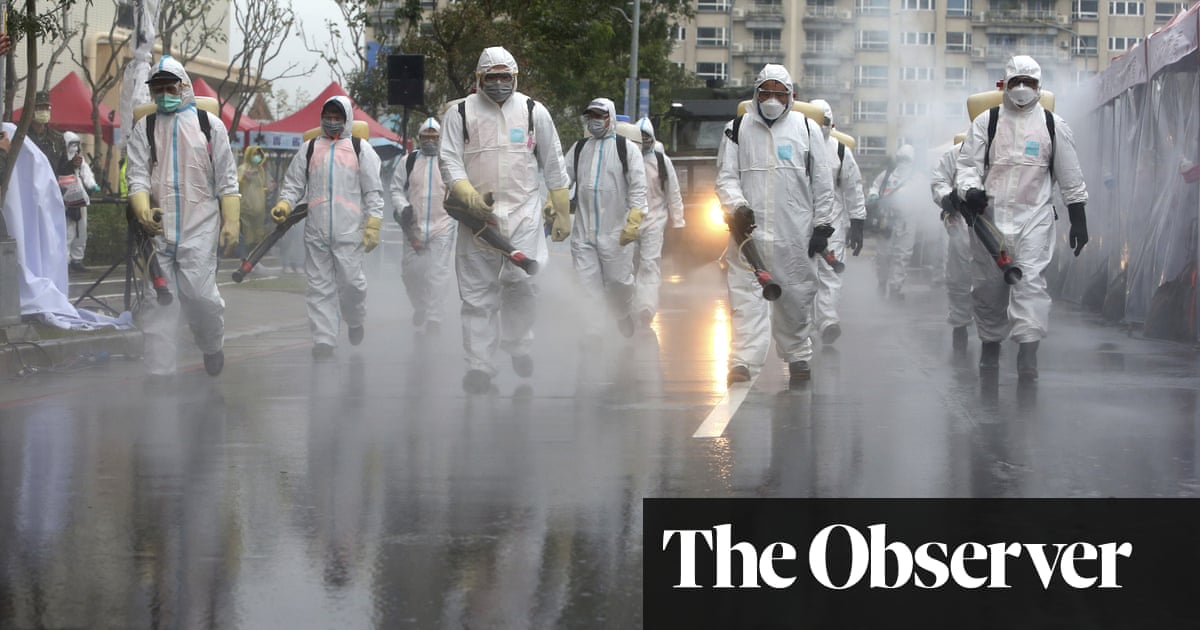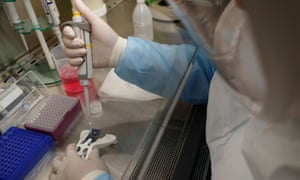Plans of action to combat the Covid-19 outbreak around the world show huge differences

There has been a huge difference in how the coronavirus pandemic has evolved in different countries. Some have gone nearly two months with just a few dozen cases; others have seen an outbreak explode in weeks.
The statistics about the early evolution of cases can be confusing, because some countries were slow to test or late to announce results. Italys first case was at the end of January, but the disease is thought to have been circulating there from the middle of the month. Likewise the steep rise of cases in Iran suggests it was spreading long before the first positive test.
Many of the countries that have had the greatest success in containing the disease are ones that were affected by Sars in 2002-03. The memory of that crisis may have led to better preparedness, in government and among the population, and to a greater willingness among people to comply with restrictions on movement and daily life to prevent the spread of infection.
There are three main aspects to controls that aim to stop the spread of the disease. The first is travel bans on people from areas with high levels of cases (initially mainland China, now many more places); the second is quarantine rules to prevent known or suspected carriers from spreading infection; and the third is shutdowns and social distancing to prevent transmission between unidentified carriers by reducing human contact.
Below we take a look at some of the worst-affected countries, and the most successful at containing coronavirus so far. China has not been included, because its circumstances are an outlier. But it is another example of how quarantine requirements, and strict controls on movement and social interaction, can dramatically curb the spread of the disease. On Friday it had only eight new cases, the first time that number has fallen into single digits since the outbreak began.
Initially, Italy did little to stop the spread of coronavirus. After it registered more deaths than any other country outside China, and the scale of the crisis became clear, it locked down first the northern region at the centre of the crisis and then the entire country.
Schools and universities have closed, along with all shops except supermarkets and pharmacies. Restaurants and bars are closed to customers, although they can make home deliveries. Sports events and outdoor gatherings are banned.
Permission is required if travel is vital for medical, work or personal reasons.
Iran
After announcing the first cases (and deaths) in late February, Iran did nothing about coronavirus perhaps because the government felt it could not afford to offend China, a vital partner for the isolated country. Flights between Iran and China continued, and Iran donated a million face masks to China. Even after the toll began to rise rapidly, and senior politicians tested positive, health workers in small hospitals did not initially use protective gear.
Now schools have been closed and most Friday prayer services are cancelled. People have been urged to self-isolate, and the government has warned it may use force to prevent internal travel. The country has dug mass graves to bury the dead.
South Korea
The countrys most important tool in fighting coronavirus has been its testing system; South Korea has run far more tests per capita than any other country and nearly 10 times more than in the UK.
Many of those tested are members of the Shincheonji religious sect, whose members in Daegu city account for more than half of cases. There are 53 drive-through testing stations, allowing people to check their illness without physical contact.
Other measures include cancelling major events, and asking people to stay away from Daegu. The start of a new school term has been delayed from 2 March to the 22nd. Emergency childcare in classes of no more than 10 is offered for those who must go to work. Home working has been encouraged, with subsidies for companies that offer employees the flexibility to manage new care responsibilities.
GPS maps, available online to the public, track the movements of anyone confirmed to have the virus. South Korea also screens passengers leaving the country.
Widespread testing meant a jump in confirmed cases, currently more than 7,800, but resulted in a very low mortality rate, below 1%. New daily cases are down from a peak two weeks ago, and on Friday the country reported more recoveries than new cases, for the first time since the outbreak began.
Taiwan
Despite its closeness to China, physically and in economic terms, Taiwan has had extraordinary success in controlling the coronavirus. Efforts may have been helped by the Sars experience, and the fact that the vice-president is an epidemiologist.
Taiwan was probably the first country to try to stop coronavirus spreading, bringing in checks on travellers from Wuhan at the end of December, after reports of a mystery, pneumonia-like illness.
A command centre for epidemics kicked into action in late January, producing new policies and monitoring virus-tracking and treatment efforts. Wider travel restrictions on people coming from mainland China were introduced despite the insistence of the World Health Organization (WHO) that they were not necessary. Extensive testing and contact-tracing through the public health system prevented the disease spreading.
School holidays were extended during late February, and schools can be closed again if cases emerge among students.

Singapore
Travel restrictions on people coming from mainland China were put in place, going beyond WHO advice. An exhaustive testing regime covered anyone with flu-like or pneumonia symptoms. All possible contacts of those infected were tracked, involving the police, flight manifests and a local test for antibodies that circulate after an infection clears.
Tests are free, and a huge public information campaign has urged even people with mild symptoms to see a doctor. The government covers medical bills for suspected or confirmed cases, so there are no financial risks to getting tested.
Self-employed people get a quarantine allowance, and employers are banned from deducting days in isolation from annual leave.
Measures can also be punitive, with one couple prosecuted for providing false travel history.
Hong Kong
Most border crossings with mainland China have been closed, and people arriving from there must quarantine for 14 days.
Schools and universities closed in mid-January, and most remain shut, although a few private schools have partly reopened. Working from home has been encouraged where possible. Museums and sports facilities are shut, and people told to avoid large gatherings.
Those with strong memories of Sars have voluntarily stayed home when they can, and used masks and hand sanitiser when they have to go out.
The measures have also brought a drop in seasonal flu cases.
Original Article : HERE ;
from AllAbout https://allabout.pw/experience-of-sars-a-key-factor-in-countries-response-to-coronavirus/
No comments:
Post a Comment